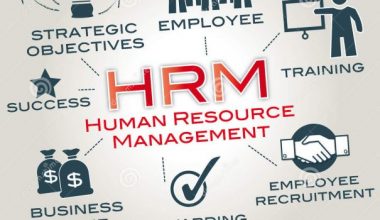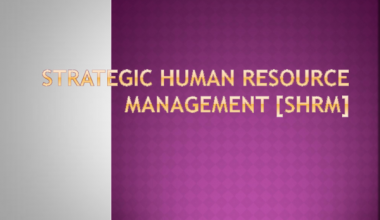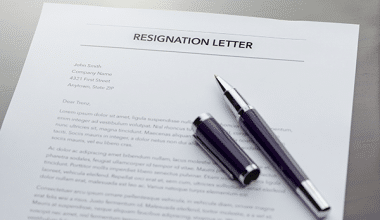With more Gen Zers and Millennials joining the workforce, employers and HR managers often face the challenge of handling them, as their behaviors and thought patterns in the workplace are quite different from those of the older generations. To identify and retain top talents in these generations, you have to understand how they approach life in the workplace, and that’s what this article is about. Read on.
Gen Z vs Millennials: Understanding Their Roles In The Workplace
Millennials are the generation of people born between the early 1980s and mid-1990s. The name came about because the oldest members were reaching adulthood at the turn of the millennium. They are also sometimes called Gen Y since they come before Gen Z.
Generation Z is the generation of people born between 1997 and 2012. They are popularly known as “Gen Z,” for short. This generation comes after Millennials and before Generation Alpha. The oldest members of Gen Z are reaching their late 20s, while the youngest may be as young as 12.
Millennials are the largest generation in the workforce right now, while Gen Z is gaining traction as they graduate from college and land their first jobs. Both Millennials and Gen Zers have a lot in common in how they communicate, use technology, approach career development, receive feedback and recognition, and prioritize well-being. But it’s important to understand what keeps these generations engaged and thriving in the workplace as there are also a few differences between them. Let’s dive right in.
Gen Zs vs Millennials: Similarities in The Workplace
Gen Zs and Millennials might think and act differently, but they still have similarities in how they behave in the workplace. Here are some of them:
#1. Gen Zs and Millennials both advocate for working flexibly
Ask a Gen Z what their ideal work experience is like, and you’ll never hear them mention doing a 9-5 for five to six days a week! This is the same for Millennials. Work flexibility is very high on their list of requirements. It is not an option. For any office job, they expect to be allowed to choose between working from home, working on-site, or from another location. Their job should be such that allows them to maintain a work-life balance, as well as keep their mental health in check. Most times. They’re often labeled as lazy, but research has proven that these generations can achieve optimum productivity in the right conditions.
#2. Both Gen Z and Millennials Prioritize Skill Development and Career Growth
The two generations will hardly stay in a job position that does not give them room for personal growth and development. They believe in continuous learning and improvement, and so they look for jobs that afford them those opportunities. If you want to retain the top talents in these generations, you should create opportunities for continuous learning and development of soft skills. This way, you’ll keep them more engaged, productive, and loyal.
#3. Both Gen Zs and Millennials strive to create a work-life balance
According to the Deloitte Global 2022 Gen Z and Millennials survey, work-life balance is one of the major things that Gen Zs and Millennials look out for when applying for a job. They believe that your work shouldn’t stop you from spending time with your friends and loved ones. This is quite different from the older generations, who prioritized job safety more than any other thing.
#4. Gen Z and Millennials both strive to achieve purpose
Apart from achieving work-life balance, both generations also strive to achieve purpose in their careers. In their quest to find purpose, they either switch jobs or decide to create their own business. They also tend to have an entrepreneurial mindset.
#5. Reliance On Technology

Being born in the digital age, millennials and Gen Z are used to using digital devices and software. They expect work processes to be digitalized where possible. Given that they’re big on work flexibility, they’ll prefer video calls and chats to just sitting around tables for long meetings.
#6. Recognition of achievements
Both Gen Zs and Millennials love to be recognized for their work. It doesn’t have to be a big deal anyway; just a simple ‘I love how you handled this project’ will boost their performance. I remember when I was managing a project with a team composed mainly of Gen Zs. At the end of every task, I made sure to acknowledge each team member’s contributions. They felt recognized and appreciated, and they showed more dedication to the work. The project was eventually completed sooner than expected, with a throng of happy employees looking forward to greater accomplishments. It was a reminder of the power of recognition, no matter how small, in fueling performance and fostering a positive work culture across generations.
#7. Open communication and feedback
Studies show that both Gen Zs and Millennials prefer open communication to circulars. They expect their employers to communicate with them clearly and to establish regular feedback channels.
Gen Z vs Millennials: Differences in the Workplace
Gen Zs and Millennials have a lot in common, but their approaches differ.
Communication Styles
Take communication, for example. Both Gen Zs and Millennials prefer virtual communication to face-to-face conversations. However, Gen Zs are more inclined to use informal language, and it’s easy to see them as rude if you don’t understand them. Suppose you have a mix of different generations in your workplace. In that case, I’ll advise you to introduce team-building activities for Gen Zs to interact with the older generations so they can understand each other better.
Read Also: EMPLOYEE ENGAGEMENT: Ideas, Activities & Importance
Technology Preferences
Millennials and Gen Z are both technologically inclined. However, Gen Z is more likely to engage in visual content than Millennials, since they were born during the peak of technology. Compared to Millennials, they’ll prefer to engage visually with their phones rather than with other devices. As an employer, you’ll do well to involve Gen Zs and Millennials in your office when adopting new technology.
Feedback and Recognition
We already established that both Millennials and Gen Z value feedback and recognition in the workplace. However, they perceive these recognitions differently. Millennials typically want structured performance reviews and meaningful feedback from their employers. They want to know how they can improve their performance and productivity. They value meaningful feedback, as they always strive to learn and grow in their roles.
Gen Z, on the other hand, values more frequent and informal feedback. A GenHQ study shows that more than 60% of responding Gen Zers said they need feedback from their managers at least once every few weeks. The same study shows that 20% of Gen Zers need feedback daily. They want to feel recognized, and if they don’t get frequent feedback, they’ll assume that their work is not so important, and they likely won’t give their all.
Read Also: HOW YOU DEMOTIVATE YOUR EMPLOYEES: Signs Of Demotivation In A Workplace
What Are the challenges that managers face when working with Gen Z?
I can write a long list of the challenges employers face while working with Gen Z, but this video by Simon Sinek summarizes it all:
How to Manage Gen Z and Millennials in The Workplace

As these younger generations bring unique perspectives, skills, and preferences, you need to come up with ways to harness their full potential. Here are some initiatives you can take:
#1. Cultivate a Purpose-Driven Workplace
As Gen Z and millennials are drawn to workplaces that align with their values and contribute to a greater purpose, you should communicate your organization’s mission and values, emphasizing how each team member plays a role in achieving these goals. This will help foster engagement and dedication.
#2. Introduce Flexibility in Work Arrangements
Learn to adopt flexible work arrangements to accommodate your employees’ preferences. By introducing remote work options or flexible scheduling, you can enhance job satisfaction and increase productivity and loyalty. If your company provides hybrid work options, ensure you establish clear expectations for in-office work, such as setting a specific number of days per week. Leverage their tech-savvy nature by integrating modern communication tools, digital planners, and collaborative software into your workflow to improve productivity.
#3. Provide Continuous Learning Opportunities
Promote a culture that encourages ongoing education, whether through training programs, workshops, or online courses. Offer opportunities like career coaching and mentoring; this can help them identify strengths and areas for improvement and build more confidence through a customized learning approach.
#4. Encourage Collaboration and Teamwork
Gen Z and millennials perform best in collaborative environments where they feel recognized for their contributions. Foster a culture of teamwork by promoting open communication, organizing team-building activities, setting clear expectations, and encouraging cross-functional collaboration. Recognizing and appreciating your team’s achievements will help to boost morale and motivation. Ask for ideas and opinions; you can encourage participation from all team members.
#5. Promote Diversity and Inclusion
Create an inclusive workplace where diverse perspectives are valued, and individuals feel a sense of belonging. Adopt inclusive practices in recruitment, promotions, and decision-making processes, demonstrating your commitment to social responsibility.
By implementing these strategies, you can create a dynamic, inclusive work environment that not only benefits the whole team but also successfully engages Gen Z and Millennials.
Does Gen Z Work Harder Than Millennials?
There’s no direct answer to this, as work ethic varies among individuals. Both generations exhibit strong work ethics but prioritize different aspects like flexibility and purpose.
Why Is Gen Z Struggling In the Workplace?
Gen Z might struggle in the workplace due to misalignment of expectations, lack of experience, and communication barriers with older generations, exacerbated by rapid technological changes and economic uncertainties.
What Is The Hardest Generation To Work With?
Studies show that Gen Z is the hardest generation to work with.
In Conclusion,
Gen Z and Millennials, which make up the younger workforce, usually place more emphasis on work flexibility and general well-being. But the truth is, everybody thrives when their needs are being met. By understanding the behaviors of the different generations in your workplace, you can create a conducive work environment for your employees.
- CONSUMER TRENDS: Top Best Global Consumer Trends for 2023
- TOP LEAD GENERATION COMPANIES OF 2023 ( Updated List)
- Understanding Consumer Behavior: A Comparative Analysis between Gen Z and Millennials
- Save Money Live Better: 15+ Best Easy Hacks for Millennials in 2023






